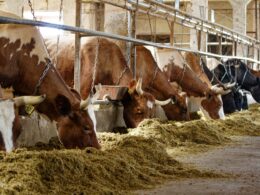The BBC’s Net Zero targets have been validated by the globally recognized Science-Based Targets initiative (SBTi). Building on their existing Near-Term Targets to cut emissions by 50% by 2030, BBC’s Long-Term Targets that have been approved is to reduce all emissions by at least 90% by 2050, aligning with the SBTi standard.
In 2022, the BBC and its commercial subsidiaries, including BBC Studios, committed to setting Long-Term Targets and adopting the SBTi’s Net Zero standard, the official body for validating climate goals.
Following SBTi’s approval, the Near-Term Targets of BBC are to reduce absolute scope 1 and 2 greenhouse gas (GHG) emissions by 46.2% by FY2030/31 from the FY2019/20 base year, and cut absolute scope 3 GHG emissions by 28% within the same period.
The Long-Term Targets are to achieve a 90% reduction in absolute scope 1, 2, and 3 GHG emissions by FY2050/51 from the FY2019/20 base year. This target also includes land-related emissions and removals from bioenergy feedstocks.
BBC’s sustainability strategy includes three key elements, nature positive, net zero, and people positive. Danielle Mulder, BBC Group Director of Sustainability said, “Our Near-Term Targets paved the way to setting Long-Term Targets to achieve true Net Zero by 2050. Adoption of the Long-Term Targets within the industry standard provides a credible approach that is underpinned by scientific rigour. Our approach to Net Zero is also fully aligned to our impact on biodiversity and nature positive plans.”






















